Discover the top virtual assistant services in the USA that help businesses save time, boost productivity, and scale effortlessly. Explore expert VAs for administrative tasks, customer support, marketing, and more.
Top Virtual Assistant Services in USA: The Ultimate Guide for 2025
- Homepage
- Insights
- Top Virtual Assistant Services in USA: The Ultimate Guide for 2025

In today’s fast-paced business environment, entrepreneurs and business owners are constantly seeking ways to maximize productivity while minimizing operational costs. The solution that has transformed how American businesses operate lies in leveraging top virtual assistant services in USA. Whether you’re a startup founder overwhelmed with administrative tasks or an established enterprise looking to scale efficiently, virtual assistant services offer the perfect blend of flexibility, expertise, and cost-effectiveness that modern businesses demand.
The virtual assistant industry has experienced explosive growth, with the global market projected to reach $19.5 billion in 2025 and potentially climbing to $55.4 billion by 2035—representing a remarkable 184% increase over the decade at a compound annual growth rate of 11%. This phenomenal expansion reflects a fundamental shift in how businesses approach staffing, operations, and growth strategies in an increasingly digital-first world.
This comprehensive guide explores everything you need to know about virtual assistant services in the United States—from understanding what makes these services invaluable to discovering the top providers, comparing pricing models, and learning how to maximize your return on investment. By the end of this article, you’ll have the knowledge and insights necessary to make an informed decision about integrating virtual assistant services into your business operations.
Key Takeaways
- What Are Virtual Assistant Services?
- Why Businesses Are Choosing Virtual Assistant Services in 2025
- Top Virtual Assistant Companies in USA for 2025
- Types of Virtual Assistant Services Available
- Pricing Comparison: What to Expect in 2025
- Virtual Assistants vs. In-House Employees: A Comprehensive Comparison
- How to Choose the Right Virtual Assistant Service
- Industries Benefiting Most from Virtual Assistant Services
- Tools and Technology for Working with Virtual Assistants
- The Future of Virtual Assistant Services
- Conclusion: Maximizing Business Success with Virtual Assistant Services
- Frequently Asked Questions About Virtual Assistant Services
What Are Virtual Assistant Services?
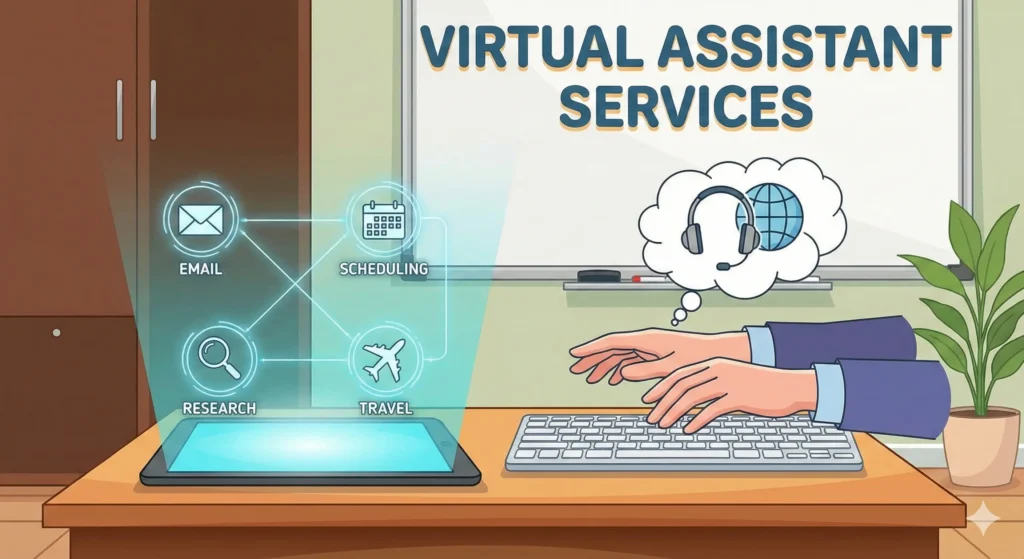
A virtual assistant (VA) is a remote professional who provides administrative, technical, creative, or specialized support to individuals or businesses while operating from an off-site location. Unlike traditional in-house employees, virtual assistants work remotely—often from home offices—and communicate with clients through email, phone, video conferencing, and project management platforms.
The concept of virtual assistance has evolved dramatically since its inception. What began as simple administrative support has transformed into a sophisticated industry offering specialized services across virtually every business function. Today’s virtual assistants bring diverse skill sets ranging from basic data entry and calendar management to complex tasks like digital marketing, bookkeeping, web development, and executive-level strategic support.
The virtual assistant services industry represents a rising powerhouse in the USA, offering small businesses, entrepreneurs, and startups a significant competitive edge. It functions like having an extra pair of skilled hands available precisely when demand is high and existing resources are stretched thin. Virtual assistants operate as independent contractors who manage complex and repetitive tasks with ease, eliminating the need to pay for traditional employee benefits, office space, and other associated overhead expenses.
The Evolution of Virtual Assistant Services
The transformation of virtual assistant services reflects broader changes in workplace dynamics and technological capabilities. In the early days, VAs primarily handled basic administrative tasks—answering calls, scheduling appointments, and managing correspondence. However, the digital revolution has expanded the scope of virtual assistance exponentially.
Modern virtual assistants leverage advanced technology platforms to deliver services that rival and often exceed what traditional in-house staff can provide. They utilize project management tools like Asana, Trello, and ClickUp; communication platforms such as Slack and Zoom; design software including Canva and Adobe Express; and marketing automation tools like MailChimp, Buffer, and HubSpot. This technological proficiency enables VAs to seamlessly integrate into existing business workflows and deliver measurable results across multiple domains.
The professionalization of virtual assistant services has created a market that is increasingly competitive, specialized, and value-driven. Businesses no longer view VAs as mere task executors—they seek experienced professionals who can proactively solve problems, suggest improvements, and even lead portions of projects. This shift has elevated virtual assistants from administrative support roles to trusted collaborators who combine digital skills with industry-specific expertise.
Why Businesses Are Choosing Virtual Assistant Services in 2025
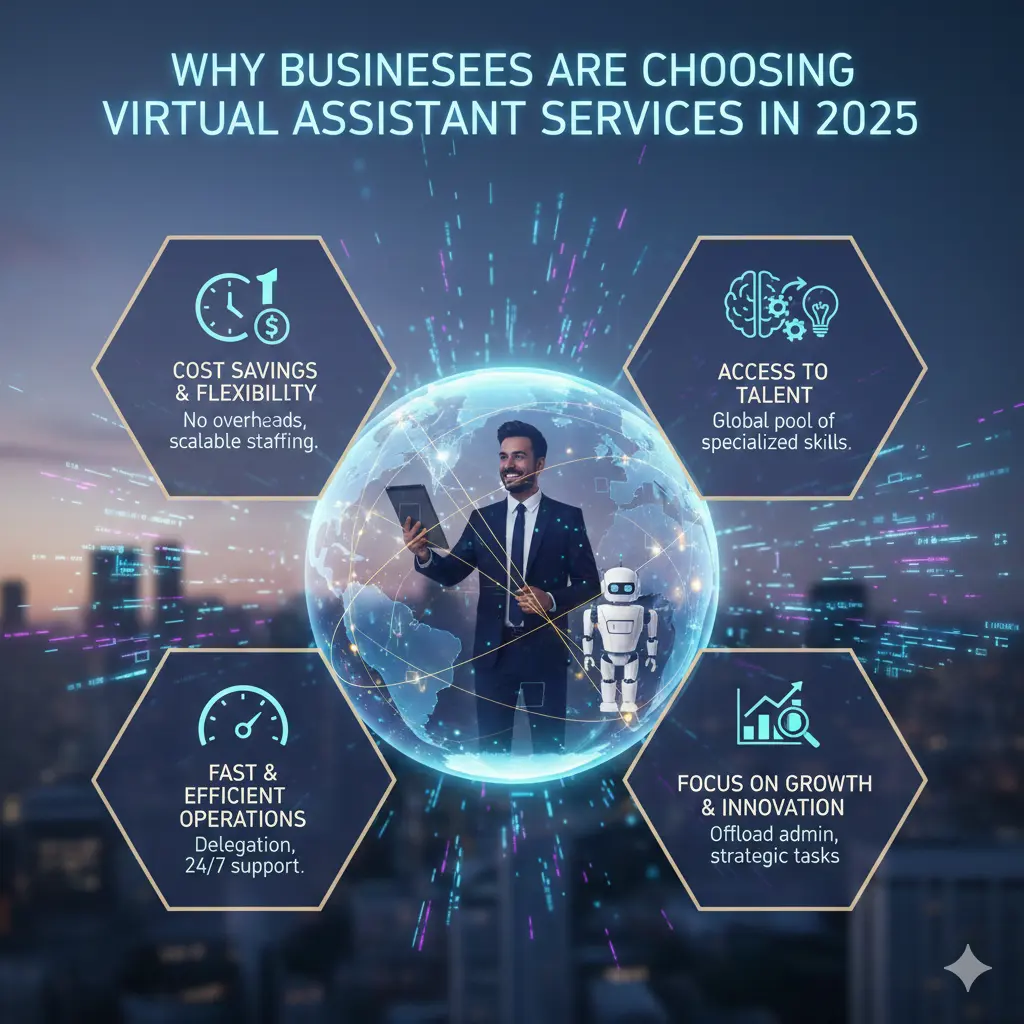
The decision to hire virtual assistant services stems from multiple converging factors that make this staffing solution particularly attractive in the current business landscape. Understanding these drivers helps business owners recognize the strategic value that VAs bring to their operations.
Cost Savings and Financial Efficiency
One of the most compelling reasons businesses choose virtual assistants is the substantial cost reduction compared to traditional employment. Hiring full-time in-house employees involves significant expenses beyond base salaries—including office space, equipment, employee benefits, training, payroll taxes, sick leave, vacation pay, and retirement contributions. Virtual assistants eliminate most of these overhead costs, allowing businesses to pay exclusively for productive work time.
Research indicates that businesses can save 40-60% on operational costs by hiring virtual assistants instead of full-time employees. A US-based business could potentially save as much as $11,000 annually by partnering with virtual assistants, with some organizations reporting savings of up to 78% in operating costs when outsourcing to offshore VAs while maintaining quality standards.
The financial advantages extend beyond direct salary comparisons. When calculating the true cost of an in-house employee, businesses must factor in recruitment expenses, onboarding time, workspace requirements, technology investments, and management overhead. Virtual assistant services compress these costs into simple, predictable pricing models—whether hourly rates, monthly retainers, or project-based fees.
Enhanced Productivity and Focus
Virtual assistants enable business owners and their teams to concentrate on high-value activities that directly drive revenue and growth. By delegating routine, time-consuming tasks to capable VAs, entrepreneurs can redirect their energy toward strategic initiatives, client relationships, product development, and business expansion.
Consider the typical entrepreneur’s schedule—packed with administrative tasks, email management, appointment scheduling, and data entry that consume valuable hours better spent on core business functions. Virtual assistants step in to handle these responsibilities, creating space for owners to focus on activities that require their unique expertise and decision-making capabilities.
Studies consistently demonstrate that outsourcing to virtual assistants improves overall business efficiency. VAs who specialize in specific task categories often complete work faster and with higher quality than business owners attempting to manage everything independently. This specialized expertise translates into faster turnaround times, reduced errors, and improved outcomes across multiple operational areas.
Flexibility and Scalability
Business needs fluctuate constantly—seasonal peaks, special projects, growth spurts, and unexpected opportunities all demand flexible staffing solutions. Virtual assistant services offer unparalleled scalability, allowing businesses to adjust support levels based on current requirements without the complexities associated with traditional hiring and termination processes.
During busy periods, businesses can quickly expand their VA support to handle increased workloads. When demand decreases, they can scale back without the financial and emotional burden of layoffs or the legal complications of employment termination. This flexibility proves particularly valuable for startups, seasonal businesses, and companies experiencing rapid growth or market fluctuations.
The ability to engage VAs on part-time, full-time, or project-based arrangements provides additional flexibility. Businesses can start with minimal hours to test the relationship, then gradually increase engagement as trust and workflow patterns develop. This progressive approach minimizes risk while maximizing the potential for long-term, productive partnerships.
Access to Global Talent and Specialized Expertise
Virtual assistant services remove geographical limitations from the hiring process, opening access to a worldwide talent pool with diverse skills, experiences, and specializations. Rather than being restricted to local candidates, businesses can identify the best professionals for their specific needs regardless of location.
This global reach becomes particularly valuable when seeking specialized expertise. Whether a business requires assistance with SEO optimization, graphic design, legal research, medical billing, or technical support, virtual assistant services can connect them with professionals who possess precisely the skills required. The ability to access niche expertise without committing to full-time employment represents a significant competitive advantage for businesses of all sizes.
Furthermore, hiring VAs across different time zones enables round-the-clock business operations. A company can maintain continuous customer support, monitor social media channels overnight, or complete urgent projects while the primary team rests—all without incurring overtime expenses or disrupting work-life balance.
Top Virtual Assistant Companies in USA for 2025

The virtual assistant market features numerous providers offering varying levels of service, specialization, and pricing. Understanding the leading companies helps businesses identify partners aligned with their specific requirements and expectations for the virtual assistant services in USA.
Go Digital Alpha

Go Digital Alpha stands as one of the premier virtual assistant companies in the United States, headquartered in Atlanta, Georgia, with nearly 1,800 team members operating across 48 states. The company specializes in U.S.-based, executive-level virtual assistants perfectly suited for high-profile professionals requiring experienced, sophisticated support.
Services Offered:
Go Digital Alpha’s virtual assistants typically possess 5+ years of experience and assist with diverse tasks including travel arrangements, marketing support, calendar management, project research, social media management, data presentations, recurring administrative tasks, first impressions and voicemail handling, and comprehensive email management.
Why They Stand Out:
Go Digital Alpha has earned recognition in publications including Forbes, Inc., and Entrepreneur for exceptional service quality. The company focuses on matching clients with experienced professionals who can handle complex executive-level responsibilities while maintaining the highest standards of professionalism for top virtual assistant services in USA.
Pricing:
Go Digital Alpha’s services represent the premium end of the market, with virtual assistants costing approximately $3,800 per month for part-time support, translating to roughly $42-43 per hour. While this pricing reflects higher investment levels, it corresponds with access to highly experienced U.S.-based professionals.
Boldly

Boldly positions itself as a premium virtual staffing company specializing in experienced, dedicated virtual assistants for businesses requiring high-caliber support. The company prioritizes long-term partnerships and provides personalized assistance tailored to individual client needs.
Services Offered:
Boldly’s virtual assistants bring industry expertise to handle executive assistance, project management, marketing support, administrative tasks, and specialized business functions. Their professionals are selected for both skills and the ability to integrate seamlessly into client operations.
Key Features:
The company emphasizes relationship building and delivering high-quality assistance that evolves with client needs over time. Boldly VAs are trained to anticipate requirements and provide proactive support rather than simply responding to requests.
Pricing:
Boldly offers flexible monthly plans starting at $2,520 for 40 hours of support, with options extending to 80 hours and custom arrangements for larger requirements. Specialized tasks like web design or technical work are charged separately at $79/hour. Pricing runs slightly higher in New York City, starting at $2,595 for 40 hours.
Time Etc

Time Etc has established itself as a leading virtual assistant service for busy managers and entrepreneurs seeking affordable, high-quality U.S.-based assistance. The company has helped over 22,000 entrepreneurs and saved more than 1.6 million hours through their services.
Services Offered:
Time Etc virtual assistants handle administrative support, content writing, data entry, marketing assistance, email management, calendar scheduling, research, and various business support functions. The company emphasizes matching clients with VAs whose skills and personalities align with specific needs.
Why They Stand Out:
Time Etc maintains a rigorous selection process, ensuring all VAs are U.S.-based, college-educated professionals with proven experience. The company offers a lifetime satisfaction guarantee and free trial opportunities, demonstrating confidence in their service quality. Customer reviews consistently praise the professionalism, helpfulness, and creativity of Time Etc assistants, with the platform earning a 4.8/5 rating from satisfied clients.
Pricing:
Time Etc offers transparent pricing with multiple plan options:
- 10-Hour Plan: $380/month ($38/hour)
- 20-Hour Plan: $740/month ($37/hour)
- 40-Hour Plan: $1,440/month ($36/hour)
- 60-Hour Plan: $2,100/month ($35/hour)
Zirtual

Zirtual, part of the Startups.com platform, provides U.S.-based, dedicated, college-educated virtual assistants designed for busy professionals and entrepreneurs. The company promises quick onboarding—sometimes within 24 hours—enabling clients to receive support rapidly.
Services Offered:
Zirtual assistants handle scheduling, event planning, travel booking, invoicing, data entry, research, social media management, email campaigns, website maintenance, and expense reporting. The company also offers paralegal services and outbound calling support for specialized needs.
Key Features:
Clients work with dedicated assistants regularly while accessing support from specialists when tasks require expertise outside their primary VA’s skill set. Zirtual offers month-to-month plans without long-term contracts, and clients can upgrade or downgrade as needs change.
Pricing:
Zirtual’s plans are structured around monthly hours:
- Entrepreneur Plan: $549/month (12 hours, 1 user)
- Startup Plan: $849/month (24 hours, 2 users)
- Small Business Plan: $1,249/month (36 hours, 3 users)
- Team Plan: $1,699/month (50 hours, 5 users)
Wishup

Wishup has emerged as a prominent player in the virtual assistant market, offering both U.S.-based and offshore virtual assistants with competitive pricing. The company selects elite virtual assistants from the top 0.1% of applicants, ensuring access to professionals with over 50 distinct skill sets.
Services Offered:
Wishup provides administration support, bookkeeping, personal assistance, social media management, research, project management, and various specialized business services. The company handles all contracts, insurance, liabilities, and employee benefits, creating a hassle-free experience for clients.
Key Features:
Wishup emphasizes rapid onboarding—completed within just 30 minutes—and offers flexible pricing plans that accommodate different business needs and budgets. The company maintains strict privacy and data security protocols, ensuring client information remains protected.
Pricing:
Wishup offers highly competitive rates:
- Hourly rate starting at $9.99/hour
- Kickstart Plan (80 hours/month): $999/month
- Growth Engine Plan (160 hours/month): $1,799/month
MyTasker

MyTasker delivers 24/7 virtual assistant services at affordable rates, making it ideal for businesses requiring continuous support across multiple time zones. The company offers a wide range of services backed by trained professionals.
Services Offered:
MyTasker provides virtual receptionist services, website maintenance, digital marketing, administrative tasks, content writing, social media management, customer service, and specialized business support. The company also offers project-based assistance for specific initiatives.
Pricing:
MyTasker’s competitive pricing structure includes:
- Basic-5: $70/month (5 hours at $14/hour)
- Basic-10: $130/month (10 hours at $13/hour)
- Basic-20: $220/month (20 hours at $11/hour)
- Plus-40: $400/month (40 hours at $10/hour)
- Plus-80: $720/month (80 hours at $9/hour)
- Plus-160: $1,280/month (160 hours at $8/hour)
Fancy Hands

Fancy Hands specializes in quick, on-demand tasks for busy professionals who need immediate assistance with specific requests. The service model differs from traditional VA relationships, focusing on rapid task completion rather than ongoing dedicated support.
Services Offered:
Fancy Hands assistants handle phone calls, appointment scheduling, online research, customer service tasks, and various quick administrative needs. Users can request help via the company’s app, email, or text message.
Pricing:
Fancy Hands offers subscription-based pricing:
- $17.99/month for 5 tasks
- $149.99/month for 50 tasks
Wing

Wing provides AI-powered matching for virtual assistant services, combining technology with human expertise to deliver efficient support solutions. The company offers both administrative support and specialized services at competitive price points.
Services Offered:
Wing assistants handle administrative support, customer service, marketing assistance, and technical support. The company’s Wing App enables executives and business professionals to manage workloads and collaborate with their virtual assistants effectively.
Pricing:
Wing offers two primary plans:
- $699/month for 80 hours
- $1,099/month for 160 hours
Virtual Assist USA
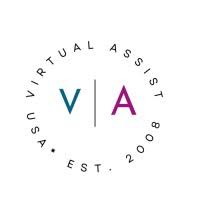
Virtual Assist USA distinguishes itself through its commitment to hiring exclusively U.S.-based virtual assistants who are native English speakers, work and live in the United States, and undergo extensive federal background checks.
Services Offered:
The company provides comprehensive virtual assistance including administrative support, project management, customer service, marketing assistance, and specialized business functions.
Key Features:
Virtual Assist USA operates on a unique per-package pricing model offering ultimate flexibility. Clients enjoy no minimums, no monthly commitments, and no recurring subscriptions—never locked into monthly contracts.
Pricing:
- Starter: $855 (20 hours at $42.75/hour)
- Core: $1,630 (40 hours at $40.75/hour)
- Premium: $2,310 (60 hours at $38.50/hour)
- Pay As You Go: $46.75/hour
20four7VA

20four7VA positions itself as a comprehensive virtual assistant solution suitable for businesses of any size—from startups to enterprises. The company offers customizable and scalable virtual assistant services with access to skilled professionals ready to assist with diverse business needs.
Services Offered:
The company provides administrative virtual assistants for routine tasks like appointment setting, receptionist duties, data entry, and executive assistance. Business support VAs handle specialized functions including lead generation, bookkeeping, and customer support. The company also maintains IT services and call center business hubs for more complex requirements.
Types of Virtual Assistant Services Available

Understanding the diverse categories of virtual assistant services helps businesses identify which type of support will deliver the greatest value for their specific situation. Modern VAs offer expertise across numerous domains, each addressing distinct business needs.
Administrative and Executive Assistance
Administrative virtual assistants remain among the most requested service categories worldwide, forming the backbone of productivity support for busy professionals. These VAs handle fundamental business operations that keep organizations running smoothly.
Key Tasks Include:
- Email and inbox management
- Calendar scheduling and appointment coordination
- Travel booking and itinerary management
- Report preparation and data entry
- Meeting coordination and note-taking
- Creating Standard Operating Procedures (SOPs)
- File organization and digital filing systems
- Document preparation and formatting
Executive virtual assistants provide more sophisticated support, often handling tasks that require discretion, strategic thinking, and the ability to represent business owners professionally. They may manage vendor relationships, coordinate complex projects, handle confidential correspondence, and make decisions within defined parameters.
Customer Service and Support
Exceptional customer service drives business success, and virtual assistants trained in customer support can significantly enhance client experiences while reducing response times and improving satisfaction levels.
Key Tasks Include:
- Responding to customer inquiries via email, chat, and phone
- Managing support tickets and CRM systems
- Processing orders and handling returns
- Following up with clients on pending matters
- Collecting and organizing customer feedback
- Onboarding new customers
Quality customer service virtual assistants help build trust and loyalty, encouraging repeat business. They ensure prompt, professional responses to inquiries and maintain consistent communication with customers across all channels.
Social Media and Digital Marketing
Maintaining a strong online presence is no longer optional for businesses—it’s essential for reaching customers and building brand awareness. Social media virtual assistants help businesses establish and grow their digital footprint without requiring full-time marketing staff.
Key Tasks Include:
- Creating and scheduling social media posts
- Managing engagement and responding to comments
- Building and maintaining content calendars
- Monitoring brand mentions and industry trends
- Running email marketing campaigns
- Creating newsletters and promotional content
- Managing paid advertising campaigns
- Analyzing performance metrics and generating reports
Marketing VAs with specialized knowledge can handle more advanced functions like SEO optimization, landing page creation, marketing automation setup, and campaign strategy development.
Bookkeeping and Financial Support
Financial management requires precision and expertise, making bookkeeping virtual assistants valuable assets for businesses seeking to maintain accurate records without hiring full-time accounting staff.
Key Tasks Include:
- Invoice processing and accounts receivable
- Expense tracking and categorization
- Payroll processing support
- Financial report preparation
- Bank reconciliation
- Budget tracking and analysis
- Tax document organization
Many virtual assistants specializing in financial support are proficient with accounting software including QuickBooks, Xero, and Wave, enabling seamless integration into existing financial workflows.
Technical and IT Support
As businesses become increasingly dependent on technology, technical virtual assistants provide crucial support for maintaining digital infrastructure and resolving technology challenges.
Key Tasks Include:
- Website updates and content management
- CRM setup and maintenance
- Workflow automation implementation
- Software onboarding and user support
- Data cleanup and reporting dashboards
- Technical troubleshooting assistance
Tech-savvy VAs help businesses streamline systems and automate repetitive tasks, particularly valuable for growing organizations with multiple locations or complex operational requirements.
Real Estate Virtual Assistance
The real estate industry has embraced virtual assistants as essential team members who handle the administrative demands of property transactions while agents focus on client relationships and closings.
Key Tasks Include:
- Managing property listings across platforms
- Scheduling property viewings
- CRM management and lead follow-up
- Preparing contracts and agreements
- Coordinating with vendors and service providers
- Transaction coordination
Healthcare and Medical Support
Healthcare providers increasingly rely on virtual assistants to manage administrative burdens, allowing medical professionals to focus on patient care.
Key Tasks Include:
- Patient scheduling and reminders
- Insurance verification and prior authorizations
- Medical billing and claims follow-up
- Patient follow-up communications
- Record-keeping and documentation
- Medical transcription
Pricing Comparison: What to Expect in 2025

Virtual assistant pricing varies significantly based on factors including location, experience level, specialization, and service model. Understanding these pricing dynamics helps businesses budget appropriately and select services aligned with their financial constraints and quality expectations.
U.S.-Based Virtual Assistants
U.S.-based virtual assistants typically command higher rates due to cost-of-living factors and the perceived value of working with professionals who understand American business culture and operate within similar time zones.
General Price Ranges:
- Entry-level administrative tasks: $25-$35/hour
- Experienced administrative support: $35-$45/hour
- Executive assistance: $40-$55/hour
- Specialized services: $45-$75/hour
Monthly costs for U.S.-based virtual assistants typically range from $1,200 to $3,000 per month for part-time support, depending on hours, experience, and complexity of work required.
Offshore Virtual Assistants
Offshore virtual assistants from countries like the Philippines and India offer substantially lower rates while often delivering comparable quality for many task categories.
General Price Ranges:
- Administrative tasks: $4-$15/hour
- Customer service: $8-$15/hour
- Social media management: $10-$25/hour
- Specialized services: $15-$35/hour
Businesses can potentially save 60-78% on labor costs by working with offshore VAs compared to hiring U.S.-based employees or contractors, though this approach requires careful consideration of communication patterns, cultural differences, and time zone coordination.
Pricing Models
Virtual assistant services utilize several pricing structures, each offering distinct advantages:
Hourly Rates: Pay only for time worked, providing maximum flexibility for variable workloads. Best for businesses with unpredictable or project-based needs.
Monthly Retainers: Fixed monthly fees for predetermined hours of support. Offers predictability for budgeting while ensuring consistent access to assistance.
Project-Based Pricing: Flat fees for specific projects or deliverables. Ideal for defined initiatives with clear scope and outcomes.
Subscription Plans: Tiered packages offering specific hours or task allocations monthly. The dedicated monthly VA segment dominates the market, expected to generate 53.5% of market revenue in 2025.
Virtual Assistants vs. In-House Employees: A Comprehensive Comparison
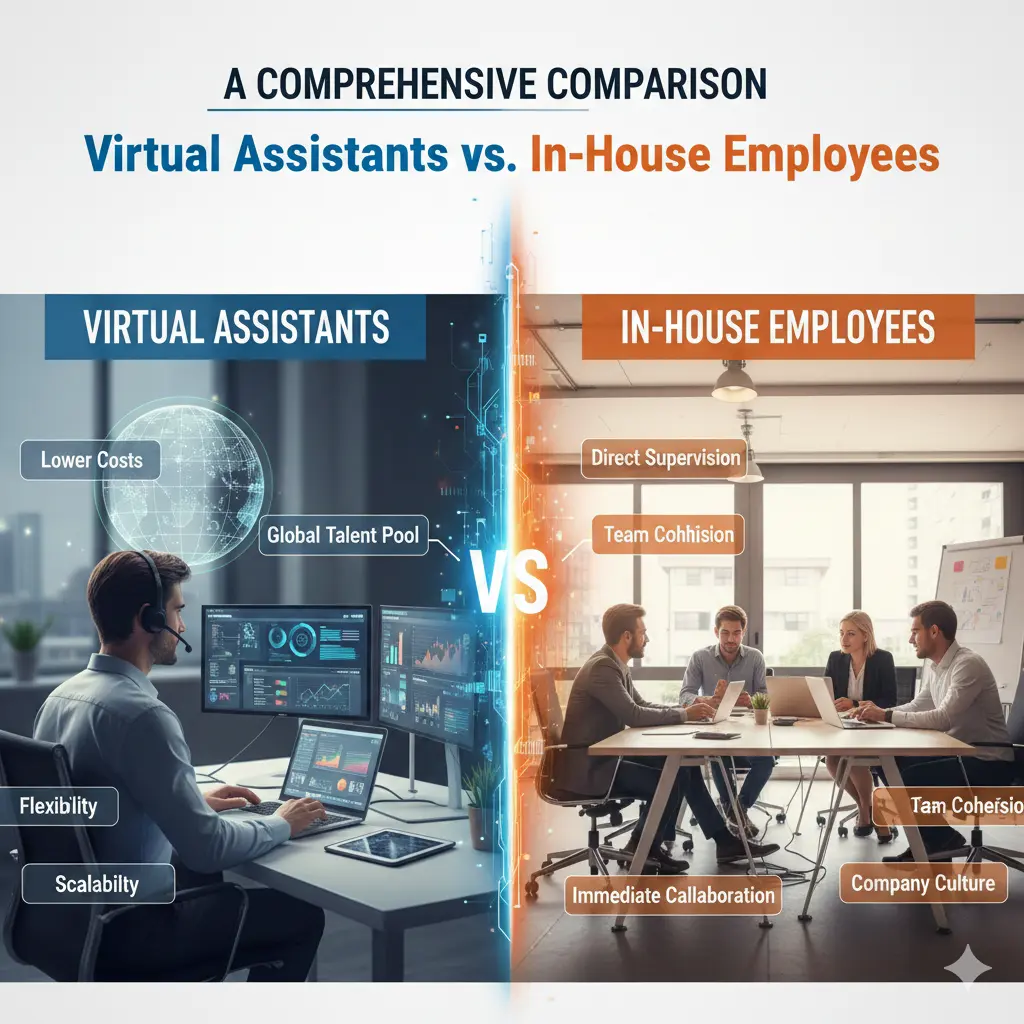
Choosing between virtual assistants and traditional in-house employees represents a significant strategic decision with implications for costs, operations, culture, and growth potential. Understanding the trade-offs helps business owners make informed choices aligned with their specific circumstances.
Cost Comparison
Virtual Assistants:
- Pay only for hours worked or services rendered
- No benefits, insurance, or retirement contributions required
- No office space, equipment, or utility costs
- Flexible engagement—scale up or down as needed
- Potential savings of 60-78% compared to in-house staff
In-House Employees:
- Full salary plus benefits package (health insurance, retirement, PTO)
- Office space, equipment, and technology costs
- Recruitment, hiring, and training expenses
- Fixed costs regardless of workload fluctuations
- Termination complications and potential severance
Flexibility and Scalability
Virtual Assistants:
- Easy scaling based on business needs
- Handle peak periods and special projects without permanent commitments
- Perfect for seasonal fluctuations or startup testing phases
- Minimal onboarding time for experienced VAs
In-House Employees:
- More rigid staffing structures
- Scaling requires recruitment, hiring, and training cycles
- Difficult to reduce staff during slow periods
- Significant onboarding investment for each new hire
Communication and Collaboration
Virtual Assistants:
- Remote communication via email, calls, video chats, and project management tools
- May face time zone differences and delayed feedback
- Requires clear documentation and communication protocols
- Technology-dependent collaboration
In-House Employees:
- Easier real-time communication and collaboration
- Stronger team dynamics and face-to-face interactions
- Immediate feedback and spontaneous discussions possible
- Direct oversight and supervision
Control and Security
Virtual Assistants:
- Less direct oversight of work processes
- Requires trust and clear confidentiality agreements
- Data security depends on VA practices and protocols
- NDAs and contracts essential for sensitive information
In-House Employees:
- Greater control over work environment and processes
- Easier enforcement of security policies
- Direct observation of work habits and productivity
- Familiar with company protocols and systems
The Hybrid Approach
Many successful businesses adopt hybrid models that combine the strengths of both virtual assistants and in-house staff. VAs handle routine, time-consuming tasks, freeing in-house employees to focus on strategic, long-term projects requiring deep company knowledge and consistent collaboration.
This approach provides flexibility—VAs can be engaged as needed during busy periods or for special projects, while core in-house teams maintain cultural continuity and institutional knowledge. The hybrid model allows businesses to scale efficiently without constantly hiring or training new permanent staff.
How to Choose the Right Virtual Assistant Service

Selecting the appropriate virtual assistant service requires careful evaluation of business needs, budget constraints, and service provider capabilities. Following a structured approach increases the likelihood of establishing a productive, long-term partnership.
Step 1: Assess Your Business Needs
Before exploring service providers, gain clarity on exactly what support you require:
Identify Tasks for Delegation:
List all tasks that consume your time but don’t require your personal attention. Consider administrative work, repetitive processes, and activities that others could handle effectively with proper guidance.
Determine Required Skills:
Match tasks to necessary competencies. An accounting assistant needs mathematical proficiency and software expertise; a marketing VA requires creative abilities and platform knowledge; an executive assistant needs strong communication and organizational skills.
Consider Business Size and Stage:
Startups often benefit from general virtual assistants who handle diverse administrative tasks. Established businesses may require specialized VAs with expertise in specific domains like real estate, healthcare, or technology.
Establish Priorities:
Rank tasks by urgency and impact. Focus initial VA engagement on highest-priority activities that will deliver immediate value and demonstrate the partnership’s potential.
Step 2: Determine Your Budget
Understanding financial parameters shapes the search for appropriate services:
Calculate Current Costs:
Assess what tasks currently cost in terms of your time and opportunity costs. Consider how much revenue or value you could generate if freed from routine responsibilities.
Research Market Rates:
U.S.-based VAs typically charge $25-$55/hour while offshore assistants may cost $4-$15/hour for comparable work. Specialized services command premium rates regardless of location.
Choose a Pricing Model:
Select between hourly rates (maximum flexibility), monthly retainers (predictable budgeting), or project-based pricing (defined deliverables) based on your needs and preferences.
Step 3: Evaluate Service Providers
Research potential partners thoroughly:
Review Service Offerings:
Ensure providers offer services matching your requirements. Some specialize in executive assistance; others focus on marketing, customer service, or technical support.
Assess VA Quality:
Investigate vetting processes, experience requirements, and ongoing training programs. Premium services typically select from top applicant pools and invest in professional development.
Check References and Reviews:
Review testimonials, case studies, and third-party ratings. Platforms like Trustpilot, Clutch, and Google Reviews provide insights into client satisfaction and service quality.
Evaluate Communication Protocols:
Understand expected response times, available communication channels, and time zone considerations. Clear communication is essential for successful remote partnerships.
Step 4: Start with a Trial
Before committing to long-term arrangements:
Request Trial Periods:
Many services offer free trials or money-back guarantees. Use these opportunities to assess fit, communication quality, and work output.
Begin with Limited Scope:
Start with a few well-defined tasks rather than comprehensive delegation. This approach minimizes risk while providing insight into the VA’s capabilities and working style.
Establish Clear Expectations:
Document task requirements, deadlines, communication preferences, and quality standards. Clarity prevents misunderstandings and sets the foundation for productive collaboration.
Industries Benefiting Most from Virtual Assistant Services

While virtually any business can benefit from virtual assistant support, certain industries have particularly embraced these services due to their operational characteristics and growth patterns.
E-Commerce
Online retailers represent one of the largest adopters of virtual assistants. E-commerce operations involve numerous repetitive tasks that VAs handle efficiently:
- Customer service (email and chat support)
- Product listing management and optimization
- Order tracking and fulfillment coordination
- Inventory management
- Social media marketing and engagement
- Data entry and reporting
E-commerce businesses often experience significant sales increases after implementing VA support—case studies report improvements of 50% or more when customer service and operational efficiency improve through dedicated assistance.
Real Estate
Real estate professionals leverage VAs to manage administrative demands while focusing on client relationships and property transactions:
- Scheduling property viewings
- CRM management and lead follow-up
- Lead generation and nurturing
- Social media marketing
- Contract preparation and transaction coordination
Real estate agencies implementing VA support have reported 20% increases in new client acquisitions through improved communication and personalized follow-up processes.
Healthcare
Healthcare providers use VAs to reduce administrative burdens on clinical staff:
- Appointment scheduling and management
- Patient follow-ups and reminders
- Insurance claims processing
- Medical transcription
- Record-keeping and documentation
Legal Services
Law firms and independent attorneys benefit from VAs who manage client communication, legal research, and documentation:
- Drafting legal documents
- Scheduling consultations
- Researching case laws
- Data entry and file organization
- Client follow-ups
Legal professionals report increases of 40% or more in billable hours when VAs handle non-billable administrative tasks.
Marketing Agencies
Marketing agencies utilize VAs for repetitive tasks, freeing creative staff for strategy and campaign development:
- Social media scheduling and engagement
- Campaign tracking and reporting
- Email marketing setup
- Content writing and proofreading
- Performance report generation
Agencies implementing VA support often experience 35% increases in client engagement and significant capacity for business development.
Technology and IT
IT firms rely on virtual assistants for project coordination, technical documentation, and customer support:
- IT support ticket management
- Meeting scheduling
- Software tool research
- Data analysis and reporting
- Customer query handling
Finance and Accounting
Accountants and financial advisors utilize VAs for bookkeeping, invoice processing, and tax preparation support:
- Data entry and reconciliation
- Invoice preparation and follow-up
- Client communication
- Report generation
- Document organization
Tools and Technology for Working with Virtual Assistants

Successful VA partnerships depend on effective tools that facilitate communication, project management, and collaboration. Investing in the right technology stack maximizes productivity and minimizes friction in remote working relationships.
Communication Tools
Slack:

Slack transforms chaotic email chains into organized, searchable conversations. Create dedicated channels for different projects or clients, share files instantly, and maintain context that email often destroys. The platform integrates with over 2,000 business applications and offers mobile apps for communication across time zones.
Zoom:

For video meetings, training sessions, and face-to-face interaction, Zoom provides reliable, high-quality video conferencing with screen sharing, recording, and breakout room capabilities.
Microsoft Teams:
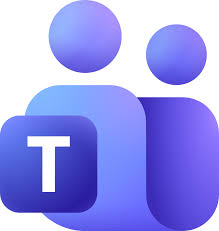
For organizations using Microsoft 365, Teams offers integrated chat, file sharing, and video calling in a unified platform. The seamless integration with Word, Excel, and other Microsoft applications streamlines collaboration.
Google Meet:

A simple, secure video calling tool that integrates seamlessly with Google Workspace, ideal for organizations already using Gmail, Google Calendar, and Google Drive.
Project Management Platforms
Trello:

A visual task management tool using boards, lists, and cards to track project progress. Trello’s intuitive interface makes it easy to understand project status at a glance.
Asana:
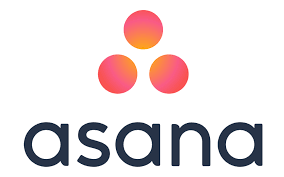
Ideal for seeing the bigger picture, Asana facilitates task assignment, progress tracking, and team accountability across complex projects and multiple workflows.
ClickUp:
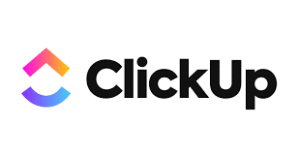
An all-in-one solution combining documents, tasks, time tracking, and goal monitoring in a single platform.
Productivity Suites
Google Workspace:

A complete productivity suite including Gmail, Google Drive, Calendar, Docs, Sheets, and Meet for seamless collaboration and file sharing.
Microsoft 365:

Comprehensive tools for document creation, spreadsheet management, presentations, and team collaboration with enterprise-grade security.
Time Tracking and Productivity
Time Doctor:

Monitors work hours, tracks productivity, and provides detailed reports on how time is allocated across tasks and projects.
Hubstaff:
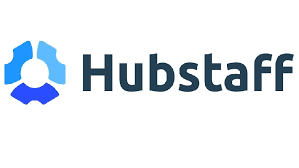
Offers time tracking, activity monitoring, and productivity measurement features designed for remote team management.
The Future of Virtual Assistant Services

The virtual assistant industry continues to evolve rapidly, shaped by technological advances, changing work cultures, and shifting business needs. Understanding emerging trends helps businesses prepare for the future of remote support.
AI Integration and Human-AI Collaboration
By 2025, virtual assistants have become increasingly hybrid—combining human expertise with AI-powered tools. VAs leverage automation, AI-driven research, and analytics to deliver faster, smarter results. Rather than replacing human VAs, AI augments their capabilities, automating routine processes while freeing VAs for higher-value strategic work.
What to Expect:
- Routine tasks automated, allowing VAs to focus on strategy and creative problem-solving
- Advanced data analysis capabilities enhancing VA insights
- AI handling 24/7 customer service, market research, and data management
- Human VAs providing judgment, creativity, and relationship management that AI cannot replicate
Specialization and Niche Expertise
By 2025, 40% of VAs are expected to offer highly specialized services in fields like IT, legal, medical support, and financial services. Businesses increasingly seek specialists rather than generalists—VAs with deep knowledge in specific domains who can deliver expert-level support.
Emerging Specializations:
- Legal VAs drafting contracts and managing case timelines
- Financial VAs helping SMEs forecast cash flow
- Marketing VAs building omnichannel campaigns from AI-generated assets
- Healthcare VAs managing compliance and patient communication
Remote Work Normalization
The shift to remote and hybrid work has unlocked global access to talent. Companies no longer need to hire locally—they can engage skilled VAs from anywhere in the world. This globalization of the talent pool continues driving industry growth and improving service quality through increased competition.
Faster Onboarding and Platform Innovation
On-demand VA platforms like Wishup, 20four7VA, and others make hiring nearly instantaneous. Pre-vetted assistants ready to start in hours rather than weeks reduce downtime and accelerate business growth. Subscription-based and dedicated VA models provide predictable, reliable support with role continuity.
The 2030 Vision
Looking further ahead, the line between in-house staff and virtual teams will blur completely. Virtual Reality may facilitate immersive meetings and training sessions, while AI tools enhance strategic decision-making. Virtual assistants won’t just be “assistants”—they’ll be indispensable partners, strategists, and innovators for businesses worldwide.
Conclusion: Maximizing Business Success with Virtual Assistant Services
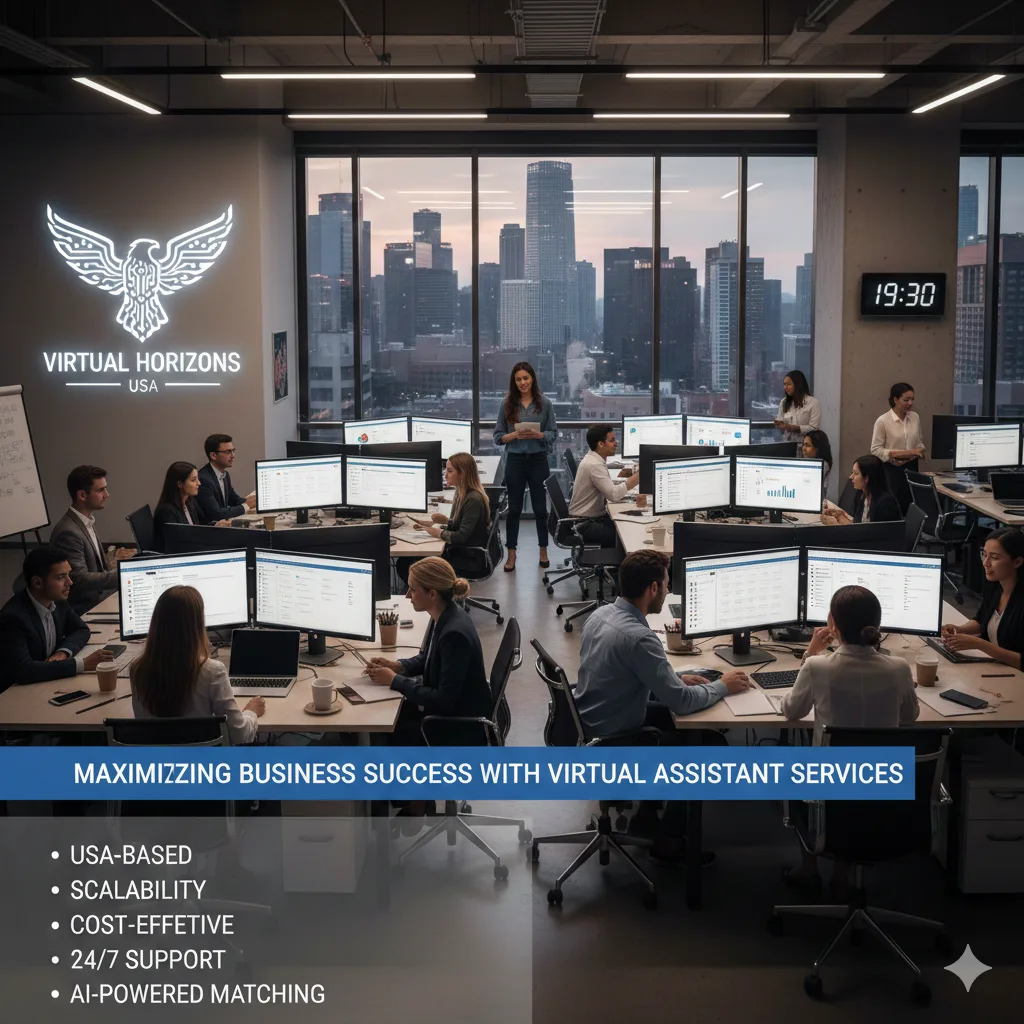
The landscape of business operations has fundamentally shifted, and top virtual assistant services in USA stand at the forefront of this transformation. From startups seeking affordable administrative support to enterprises requiring sophisticated executive assistance, virtual assistants provide flexible, cost-effective solutions that scale with business needs.
The benefits are compelling: significant cost savings compared to traditional employment, enhanced productivity through task delegation, access to global talent pools with specialized expertise, and scalability that accommodates business fluctuations without the complications of traditional hiring. Companies leveraging VA services report substantial improvements in efficiency, customer satisfaction, and overall operational performance.
Choosing the right virtual assistant service requires careful assessment of business needs, budget considerations, and service provider capabilities. Whether opting for premium U.S.-based services like BELAY and Boldly, mid-market solutions like Time Etc and Zirtual, or cost-effective offshore options, the key lies in matching service characteristics with specific business requirements.
The future promises even greater integration of AI capabilities with human expertise, increased specialization, and continued innovation in remote collaboration tools. Businesses that embrace virtual assistant services today position themselves for competitive advantages that will compound as the industry evolves.
The question is no longer whether virtual assistant services can benefit your business—the evidence overwhelmingly confirms they can. The relevant question becomes: how soon will you begin leveraging these transformative services to unlock your business’s full potential?
Take the first step today by assessing your administrative burdens, identifying tasks suitable for delegation, and exploring the virtual assistant services that align with your needs. Your future self—freed from routine tasks and focused on growth—will thank you.
Frequently Asked Questions About Virtual Assistant Services
A virtual assistant provides remote administrative, technical, creative, or specialized support to individuals or businesses. Tasks range from email management and calendar scheduling to social media management, bookkeeping, customer service, and specialized industry functions. VAs work from their own locations and communicate through email, phone, video conferencing, and project management platforms.
Pricing varies based on location, experience, and specialization. U.S.-based VAs typically charge $25-$55/hour or $1,200-$3,000/month for part-time support. Offshore VAs from countries like the Philippines may charge $4-$15/hour. Many services offer monthly retainer packages providing specific hours at discounted rates compared to hourly billing.
Virtual assistants typically work as independent contractors, not employees. This classification means businesses don't pay employment taxes, benefits, or other employer obligations. However, proper classification depends on the nature of the working relationship, and businesses should consult with legal advisors to ensure compliance with applicable regulations.
VAs communicate through various channels including email, phone, video conferencing (Zoom, Google Meet), instant messaging (Slack, Microsoft Teams), and project management platforms (Asana, Trello). Most services establish preferred communication protocols during onboarding to ensure clear, consistent interaction.
Reputable VA services implement strict confidentiality protocols including Non-Disclosure Agreements (NDAs), secure communication platforms, and data protection policies. When working with independent VAs, establish clear confidentiality agreements and provide access only to information necessary for task completion.
Onboarding timelines vary by service provider. Some companies offer same-day or 24-hour matching, while others require 7-15 days for proper vetting and matching. Many services offer rapid onboarding—Wishup, for example, completes onboarding within 30 minutes.
Most reputable services offer replacement guarantees or satisfaction policies. If a VA isn't meeting expectations, communicate concerns to the service provider—they can often make adjustments or provide a new assistant. Starting with trial periods minimizes risk before committing to longer-term arrangements.
Yes, many VAs possess specialized expertise in areas including digital marketing, bookkeeping, legal support, real estate, healthcare administration, technical support, and more. When seeking specialized assistance, look for VAs or services with proven experience in your specific industry or task category.
Share this post :
Newsletter
Add Your Heading Text Here
Lorem ipsum dolor sit amet, consectetur adipiscing elit. Ut elit tellus, luctus nec ullamcorper mattis, pulvinar dapibus leo.


































